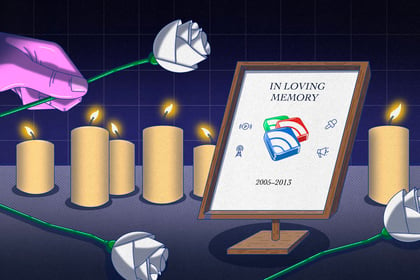Three interesting stories about technology #347

Sometimes consumer technology seems like a get rich quick scheme that actually works. An engineer comes up with an application that does something nifty, some designers and marketers get involved to make it work intuitively and find its audience, and then they laugh all the way to the VC funding or big company acquisition. It seems like the scheme benefits us app users, too: we put the app on our phone, for free or a token fee, and enjoy its delights.
For instance, take Instapaper. In early 2008, Marco Arment, of Tumblr fame, launched the quick "read later" concept. It was simple: you saved the text of any link to this app and when you wanted to do some reading, you loaded the app and made your way through your list. I was an early downloader of it and I still use it almost daily. Marco sold the app to a larger company a few years later, they still run it, making some money off of subscriptions and some ads. Everybody wins!
For every Instapaper, there's a Revue (RIP, Revue) or a Google Reader: useful, perhaps beloved apps whose candles were snuffed out by corporate strategists. The story of Google Reader is excellently told in the first link below. Despite tens of millions of users, some of them fanatics of the tool, it didn't fit with what Google wanted, so away it went.
For every Google Reader, there's a Goodreads. A niche book-reading social network, acquired by Amazon, now gives the online ragers a place to flame authors. Connecting with far-flung people on shared interests is still a nifty feature of the internet, but we're all now aware of the downside of giving people like us infinite online reach. The second link below tells the frustrating story of Goodreads being a place where some people post reviews of books they haven't read to try and stop other people from reading those books.
The last story this week shows just how crowded the internet is, or perhaps how our habits aren't easy to change. Twenty-odd years ago, everyone used a different search engine. People used to recommend or argue for their favorite. I liked one that put its results into folders: when you searched, the page would look a little like Apple's Finder window. Can you imagine how many clicks it took? Then Google ate the world. Theoretically, another kind of search engine might be better. But what it takes to replace Google is a bit different than what it took to become Google. The last link this week is the story of one company that tried.
Reading
Who killed Google Reader?Ten years after its untimely death, the team that built the much-beloved feed reader reflects on what went wrong and what could have been. |
|
The Wrath of GoodreadsAuthors are at the mercy of people who don't bother reading their work. |
|
The little search engine that couldn'tA couple of ex-Googlers set out to create the search engine of the future. They built something faster, simpler, and ad-free. So how come you’ve never heard of Neeva? |
|


